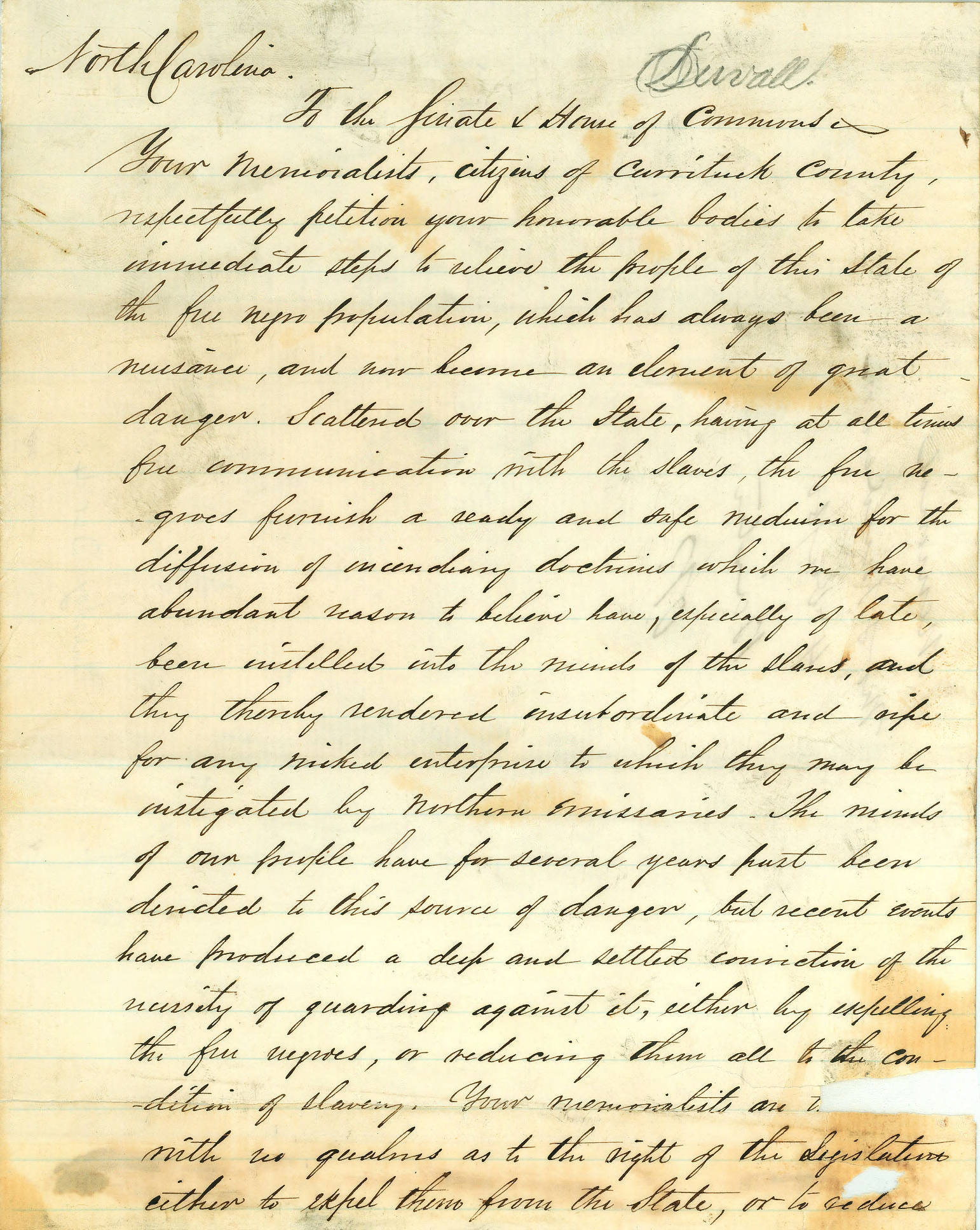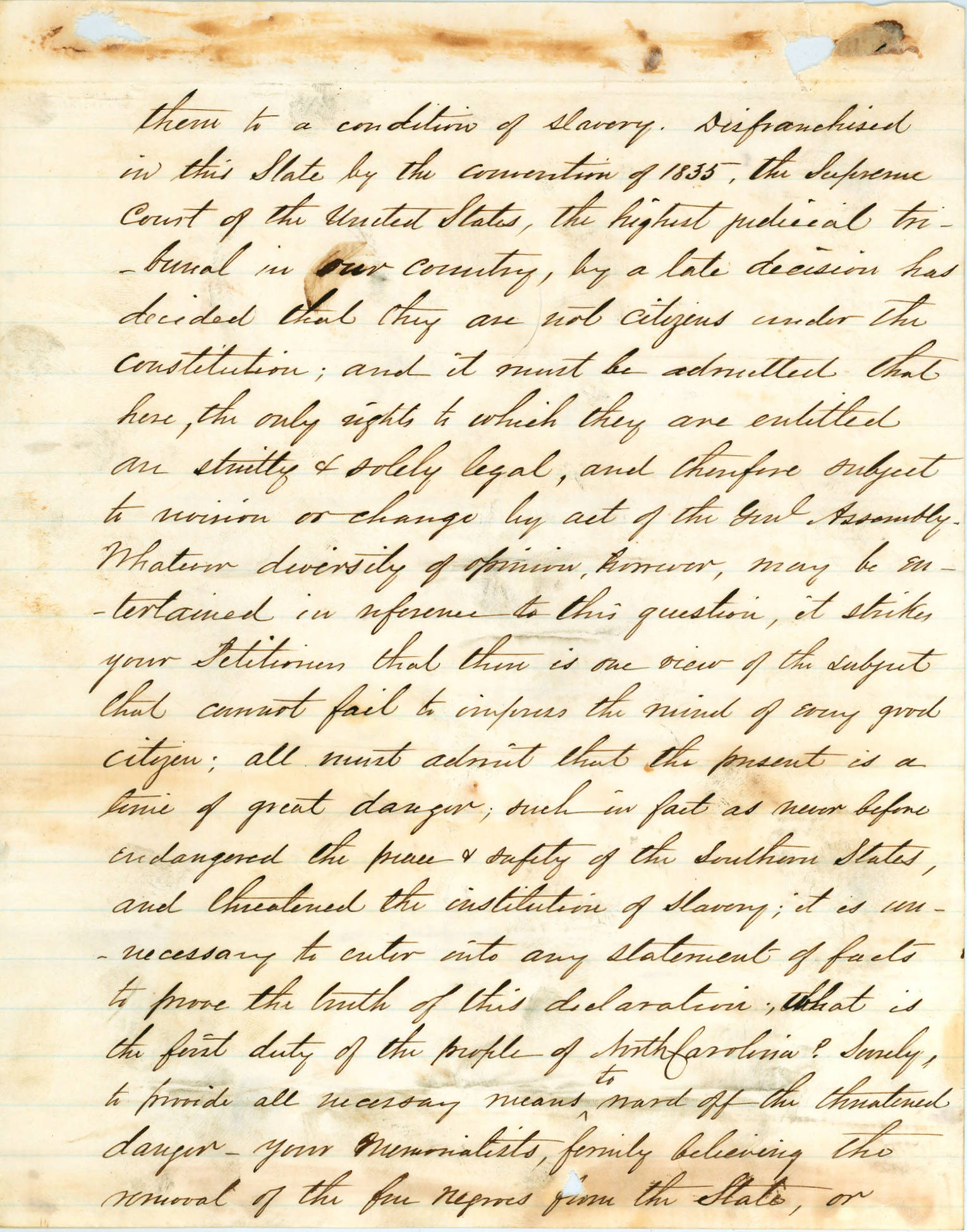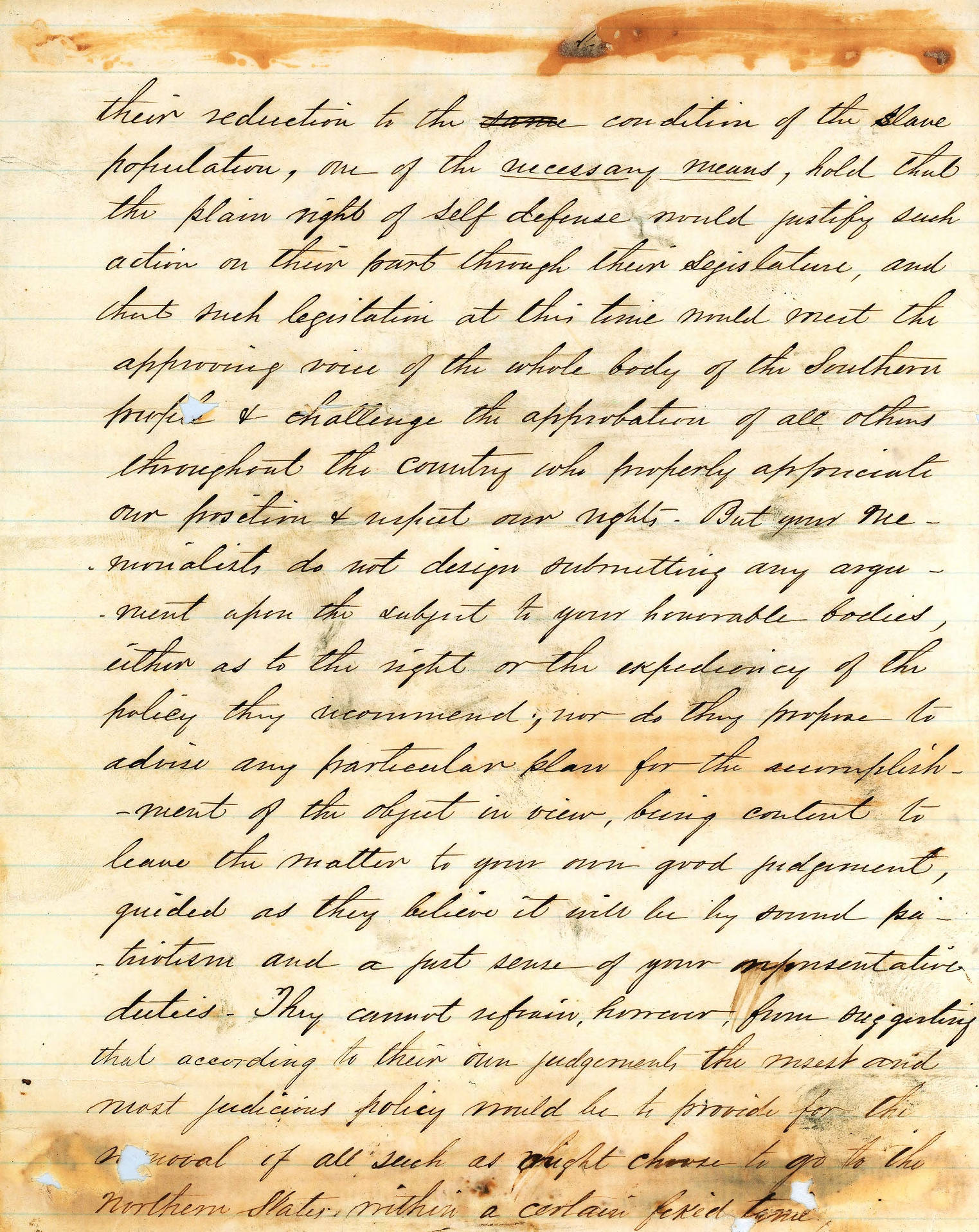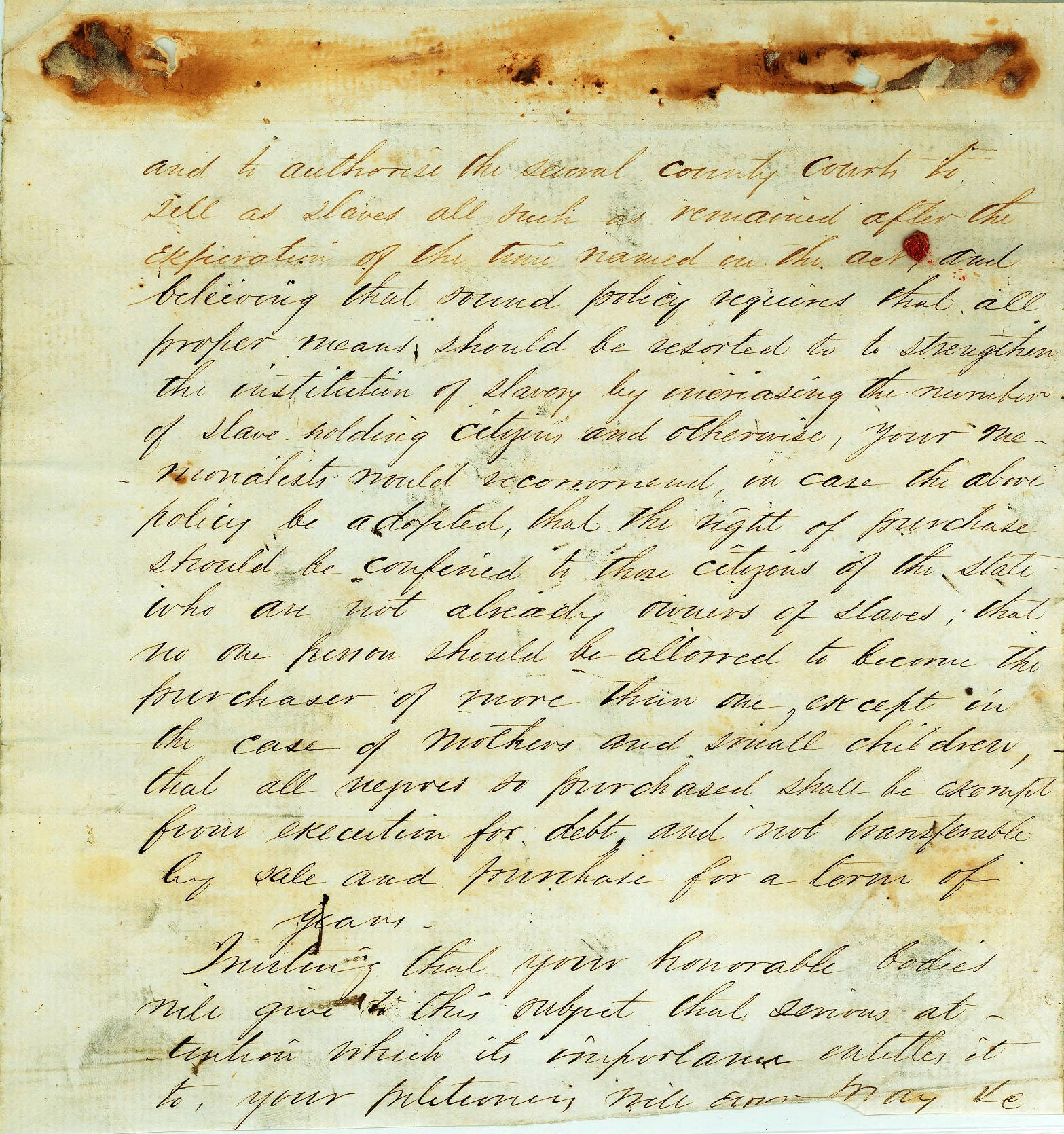This text is part of the Teaching Hard History Text Library and aligns with Key Concepts 5 and 8.




North Carolina
To the Senate & House of Commons,
Your memorialists, citizens of Currituck County, respectfully petition your honorable bodies to take immediate steps to relieve the people of this State of the free negro population, which has always been a nuisance, and now become an element of great danger. Scattered over the State, having at all times free communication with the slaves, the free negroes furnish a ready and safe medium for the diffusion of incendiary doctrines which we have abundant reason to believe have, especially of late, been instilled into the minds of the slaves, and they thereby rendered insubordinate and ripe for any wicked enterprise to which they may be instigated by Northern Emissaries.
The minds of our people have for several years past been directed to this source danger, but recent events have produced a deep and settled conviction of the necessity of guarding against it, either by expelling the free negroes, or reducing them all to the condition of slavery. Your memorialists are [word missing] with us qualms as to the right of the Legislature either to expel them from the State, or to reduce them to a condition of slavery. Disfranchised in this State by the convention of 1835, the Supreme Court of the United States, the highest judicial tribunal in our country, by a late decision has decided that they are not citizens under the Constitution; and it must be admitted that here, the only rights to which they are entitled are strictly & solely legal, and therefore subject to revision or change by act of the Genl. Assembly.
Whatever diversity of opinion, however, may be entertained in reference to this question, it strikes your Petitioners that there is one view of the subject that cannot fail to impress the mind of every good citizen; all must admit that the present is a time of great danger; such in fact as never before endangered the peace & safety of the Southern States, and threatened the institution of slavery; it is unnecessary to enter into any statement of facts to prove the truth of this declaration; what is the first duty of the people of North Carolina? Surely, to provide all necessary means to ward off the threatened danger.
Your Memorialists, firmly believing the removal of the free negroes from the State, or their reduction to the same condition of the slave population, one of the necessary means, hold that the plain right of self defense would justify such action on their part through their Legislature, and that such legislation at this time would meet the approving voice of the whole body of the Southern people & challenge the approbation of all others throughout the country who properly appreciate our position & respect our rights. But your Memorialists do not design submitting any argument upon the subject to your honorable bodies, either as to the right or the expediency of the policy they recommend; nor do they propose to advise any particular plan for the accomplishment of the object in view, being content to leave the matter to your own good judgement, guided as they believe it will be by sound patriotism and a just sense of your representative duties.
They cannot refrain, however, from suggesting that according to their own judgement, the wisest and most judicious policy would be to provide for the removal of all such as might choose to go to the Northern States within a certain fixed time, and to authorize the several county courts to sell as slaves all such as remained after the expiration of the time named in the act and believing that sound policy requires that all proper means should be resorted to to strengthen the institution of slavery by increasing the number of slave holding citizens and otherwise, your Memorialists would recommend, in case the above policy be adopted, that the right of purchase should be confined to these citizens of the state who are not already owners of slaves; that no one person should be allowed to become the purchaser of more than one, except in the case of mothers and small children, that all negroes so purchased shall be exempt from execution for debt, and not transferable by sale and purchase for a term of [blank] years.
Trusting that your honorable bodies will give this subject that serious attention which its importance entitles it to, your petitioners will ever [illegible].